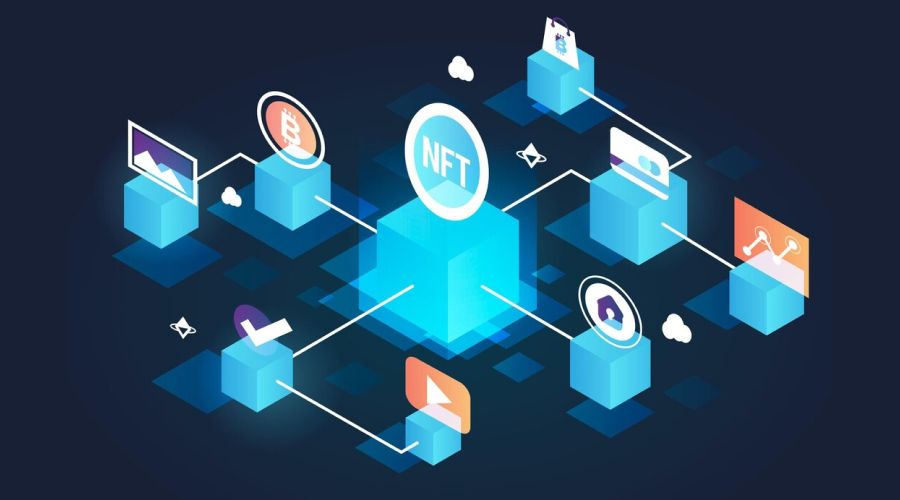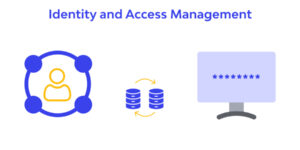
Having your identity stolen is a nightmare scenario that’s becoming all too common in today’s digital age.
With the rise of identity theft and cyberattacks, ensuring secure authentication in enterprises has never been more critical. But fear not because blockchain technology is a shining beacon of hope on the horizon.
This article will explore the fascinating world of identity management and how leveraging blockchain can provide a robust solution for secure authentication in enterprises.
What is Identity Management?
Identity management is managing and securing digital identities within an organization. It involves ensuring that the right individuals have the appropriate access to various systems and resources.
Top enterprise blockchain applications can uphold security standards by effectively managing identities and preventing unauthorized access to sensitive information.
6 Ways on How Enterprises Can Utilize Blockchain Technology for Identity Management

Here’s how businesses can leverage decentralized identity management platforms to enhance security and privacy within your enterprise:
1. Decentralized Identity Management Platforms
Decentralized identity management platforms offer enterprises a secure and efficient way to manage user identities of industries currently using blockchain technology. Utilizing these platforms can enhance your identity management practices while ensuring the utmost security for your users.
Here are some key benefits of decentralized identity management platforms:
- Enhanced Security: Protect user identities from unauthorized access.
- Increased Transparency: Gain visibility into identity verification processes.
- Improved User Control: Empower users to manage their own identities securely.
- Streamlined Authentication: Simplify the authentication process for users and administrators.
- Cost-Effective Solution: Reduce overhead costs associated with traditional identity management systems.
2. Self-Sovereign Identity Solutions
One practical approach for enterprises to leverage blockchain technology in identity management is implementing self-sovereign identity solutions.
With self-sovereign identity, you can empower individuals to have control over their own digital identities.
By utilizing blockchain’s decentralized and secure nature, you can ensure that sensitive information remains in the hands of the rightful owners. These solutions enable users to manage and share their identity data as needed, enhancing privacy and security.
By using genuine blockchain development frameworks, enterprises can benefit from reduced data breaches and identity theft risks while providing a more seamless and user-centric authentication process.
Through self-sovereign identity solutions, you prioritize the security and autonomy of individuals, fostering trust and reliability in your authentication practices.
3. Digital Identity Verification
You can use blockchain technology to enhance digital identity verification processes for improved security and efficiency. By leveraging blockchain in your enterprise, you can:
- Establish Trust: Create a trusted network for verifying identities securely.
- Enhance Privacy: Safeguard sensitive personal information through decentralized storage.
- Streamline Processes: Simplify identity verification procedures for quick and seamless interactions.
- Reduce Fraud: Minimize the risk of identity theft and fraudulent activities.
- Enable User Control: Empower individuals to manage their own digital identities securely.
These strategies will benefit your enterprise and ensure a smoother and more secure customer and user experience.
4. Immutable Audit Trails
Blockchain technology offers immutable audit trails, providing a secure and tamper-proof record of identity-related transactions.
By leveraging blockchain for identity management, enterprises can create transparent and auditable trails of every interaction, ensuring accountability and traceability throughout the authentication process.
This feature enhances security and trust by allowing authorized parties to verify the integrity and history of identity-related transactions, mitigating the risk of fraud and unauthorized access.
5. Multi-Factor Authentication (MFA)
Blockchain technology offers immutable audit trails, providing a secure and tamper-proof record of identity-related transactions. Here’s how blockchain technology works:
- Enhanced Security: Blockchain technology provides a secure and decentralized platform for storing authentication credentials, reducing the risk of centralized data breaches.
- Creation of Cryptographic Keys: It allows for creation of cryptographic keys and digital signatures, which can be used as additional factors in the authentication process.
- Immutability: Blockchain’s immutability ensures that once authentication data is recorded on the ledger, it cannot be altered or tampered with, enhancing the reliability of the authentication process.
- Cross-Platform Implementation: With blockchain, enterprises can implement MFA across various devices and platforms, ensuring consistent and robust identity verification mechanisms.
6. Cross-Enterprise Identity Management
Securely managing identities across multiple enterprises can be achieved by integrating blockchain technology.
Blockchain’s distributed ledger ensures that identity information is encrypted and tamper-proof, enhancing data security across various organizations. Enterprises can utilize smart contracts to automate identity verification, streamline access control, and reduce administrative burdens.
Through blockchain technology, you can establish a unified identity system that simplifies user authentication while maintaining data privacy and integrity.
Here’s how blockchain technology can help with cross-enterprise identity management:
- Seamless Integration: Blockchain facilitates seamless integration of identity management systems across multiple enterprises, allowing for efficient sharing and verification of identity data.
- Shared Ledger: Enterprises can maintain a shared ledger on the blockchain, enabling real-time access to verified identity information without intermediaries.
- Interoperability: Blockchain promotes interoperability between disparate identity management systems, ensuring compatibility and consistency in identity verification processes across different organizations.
- Enhanced Collaboration: By leveraging blockchain for cross-enterprise identity management, organizations can collaborate more effectively, securely sharing identity data while maintaining control over access permissions.
- Improved Efficiency: Cross-enterprise identity management on the blockchain streamlines authentication processes, reducing administrative overhead and enhancing operational efficiency for all participating entities.
Benefits of Blockchain in Identity Management
Here are the benefits of blockchain technology in identity management
- Enhanced Security: By distributing identity data across a network of nodes and encrypting transactions, blockchain reduces the risk of data breaches and unauthorized access.
- Increased Trust and Transparency: With every transaction recorded on the blockchain, individuals have greater visibility and control over their identity data, reducing the need for intermediaries and enhancing transparency in authentication procedures.
- Simplified Verification Processes: Blockchain-based identity management systems streamline verification processes by providing a single, unified source of truth for identity information. This eliminates the need for individuals to repeatedly verify their identity with different organizations.
- Cost Efficiency: By eliminating intermediaries and reducing manual verification processes, blockchain lowers operational costs associated with identity verification while improving the overall efficiency of authentication procedures.
Conclusion
Overall, leveraging blockchain technology for enterprise identity management offers a secure and efficient solution for authentication processes. By utilizing blockchain, organizations can enhance data privacy, reduce the risk of cyber attacks, and improve user trust.
Implementing blockchain technology in identity management can streamline operations, increase security, and provide a reliable authentication system that benefits the company and its users. It’s a win-win solution for all parties involved.






